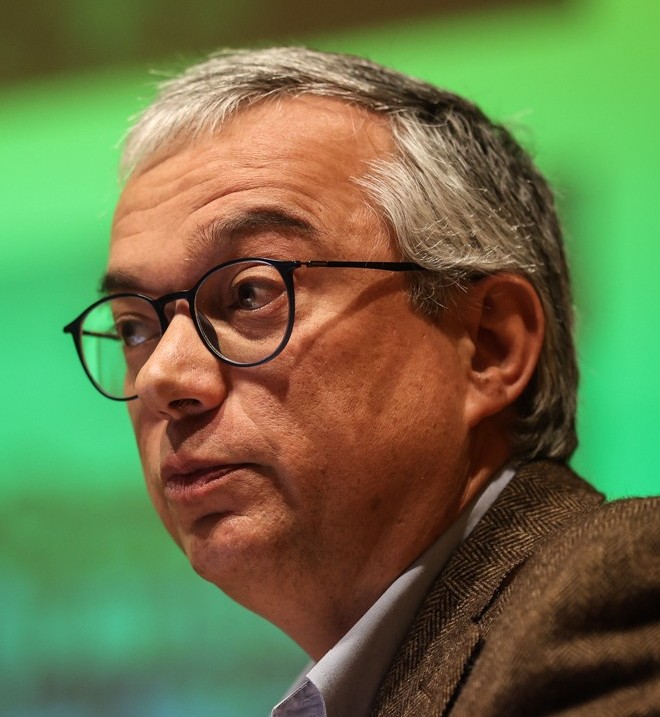 |
Paulo B. LourençoTitle: Conservation and management of modern historic buildings: Recent works on heritage of Portuguese origin Brief Summary: Our built cultural heritage is at risk and specialized expertise is necessary for its protection, namely forensic engineering skills such as inspection, diagnosis, and damage in various forms; in-depth knowledge of survey techniques; and advanced structural analysis. The Beira train station in Mozambique and the Swimming Pool in Leça of architect Álvaro Siza will be showcased as examples of application of an integrated methodology for preventive conservation historic buildings. Brief CV: Professor at the Deptm. of Civil Engrg., Univ. of Minho, Portugal. Experienced in non-destructive testing, advanced experimental and numerical techniques, innovative repair and strengthening techniques, and earthquake engineering. President of ICOMOS ISCARSAH – Int. Scientific Committee on the Analysis and Restoration of Structures of Architectural Heritage. Specialist in structural conservation and forensic engineering, with work on 200 monuments, including 20 UNESCO World Heritage Sites. Revision leader of the European masonry code (EN 1996-1-1). Coordinator of the MSc on Structural Analysis of Monuments and Historical Constructions. Editor of the Int. J. of Architectural Heritage. Author of “Historic Construction and Conservation” and “Finite Element Analysis for Building Assessment”, Routledge. Supervised 80 PhD theses. Awarded a ERC Grant to develop an integrated seismic assessment approach for heritage buildings. Coordinator of a European Doctoral Network on sustainable building lime applications. Full presentation: link |
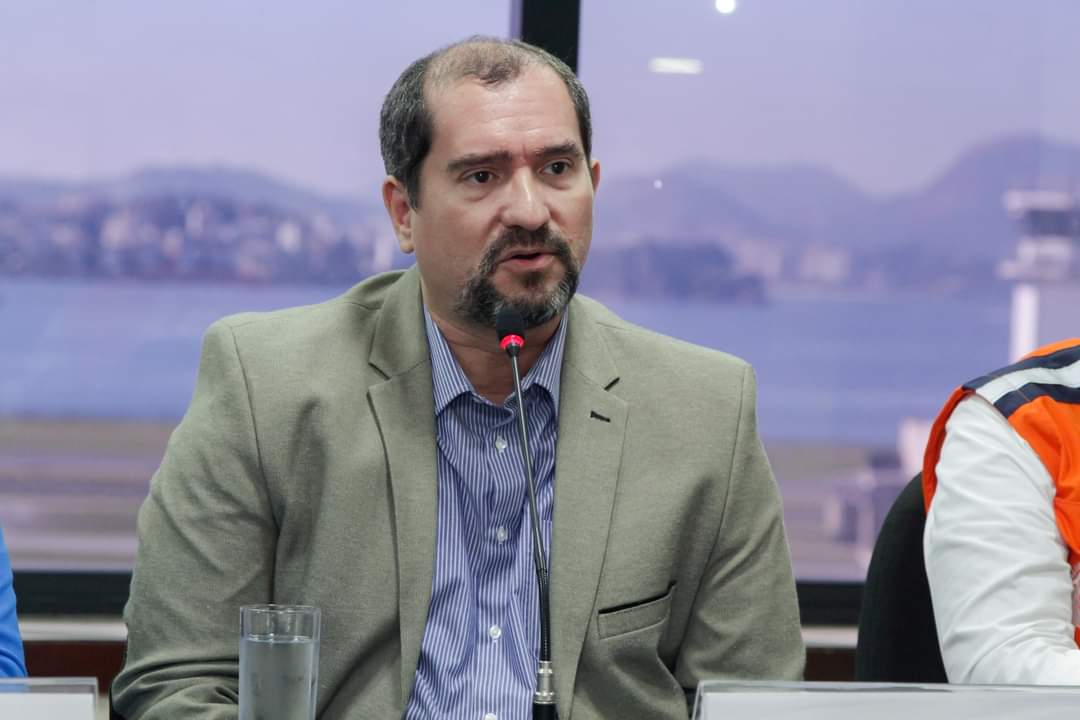 |
Leandro Torres Di GregorioTitle: Challenges in predicting and responding to urban flooding associated with extreme events Brief Summary: In an increasingly critical climate change scenario, the adaptation of cities is essential to protect the population and reduce the damage and losses caused by the impact of extreme events. The aim of this conference is to address the challenges and prospects for developing integrated forecasting and response systems for urban flooding. These systems involve a complex interaction between technological, scientific, social and organizational aspects, acting in different dynamics, scales and contexts, institutional and community, which need to be harmoniously integrated. Brief CV: Full Professor at the Department of Civil Construction of the Polytechnic School of the Federal University of Rio de Janeiro since 2014, he holds a bachelor's degree in Civil Engineering from the Federal University of Rio de Janeiro (2003), a master's degree in integrated management systems (2009), a specialization in emergency and disaster management (2012) and a doctorate in comprehensive disaster risk management (2013), from the Fluminense Federal University. Post-doctorate in sustainable and resilient construction from the University of Aveiro (2022). He worked for 10 years as a director of a construction company and as an advisor to the Federation of Industries of the State of Rio de Janeiro on issues related to entrepreneurship, innovation and ESG governance. From 2011 to 2013 he was a researcher/project manager at the National Center for Natural Disaster Monitoring and Alerts (CEMADEN-MCTI), participating in inter-institutional projects of national and international scope. Author of the book Gestão de Riscos e Desastres Hidrológicos, ed. Elsevier/ Campus, 2018. He is a consultant and mentor to various public and private institutions on issues related to comprehensive disaster risk management. Full presentation: link |
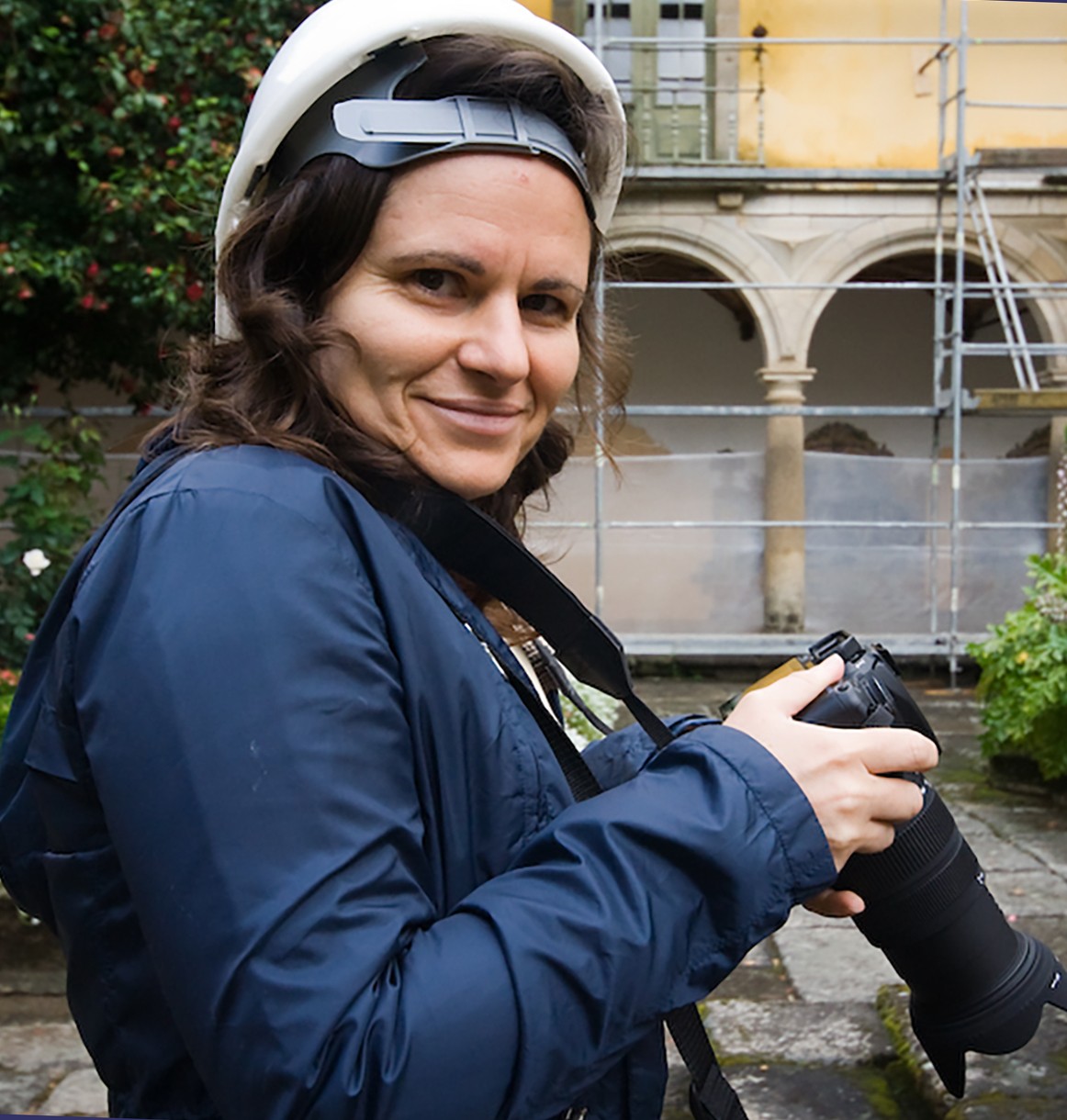 |
Clara ValeTitle: Circularity processes in construction as a contribution to carbon neutrality Brief Summary: Carl Elefante stated that "the greenest building is the one that already exists", highlighting the importance of preserving the built environment. But can this same idea be applied to components such as bricks and roof tiles? Reusing what was already available was once an ancestral practice, lost with industrialization and the shift in timeframes, scales, and construction processes. Today, it presents a challenge in an era of strict certifications and standardized procedures. Reuse means working with uncertainty. This presentation will analyse concrete examples of circularity in construction, exploring strategies and solutions to promote a new paradigm towards carbon neutrality. Brief CV: Associate Professor at FAUP, member of the Executive Council of FAUP and Integrated Researcher at CEAU – Centre for Studies in Architecture and Urbanism, with expertise in building physics and the history of 20th-century Portuguese construction. Member of the board of SPEHC – Portuguese Society for Studies in the History of Construction. Her research focuses on the history of construction, exploring lessons from the past to address contemporary challenges such as rehabilitation, reuse, sustainability, and climate change; building materials from both historical and contemporary perspectives (such as cork, natural cement, earth, timber, and ceramics); vernacular architecture, highlighting the use of local, natural, and regenerative materials, and the rational use of resources; and the application of new technologies in the construction and rehabilitation of the built environment, including photogrammetry, laser scanning, and thermography. Full presentation: link |
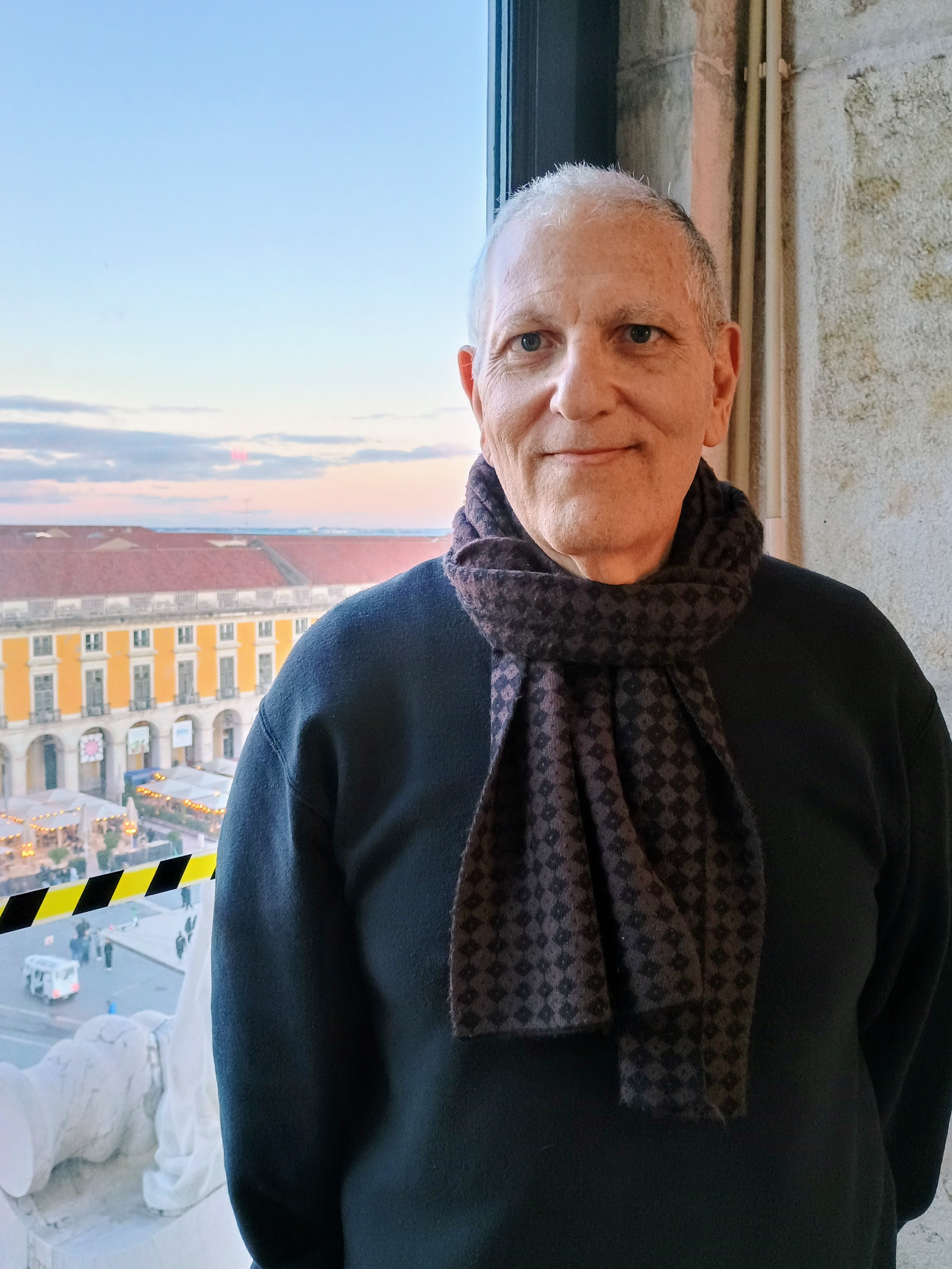 |
Assed Naked HaddadTitle: Challenges and opportunities in the use of Digital Twins and Blockchain technologies in building sustainability Brief Summary: The technological evolution of products, services and organizations consumes a lot of resources and imposes difficulties on the management of companies, cities and countries. The use of digital representations in the construction industry, strongly induced by the use of BIM methodology, requires complex innovations and solutions that still have little known consequences. Technologies such as Digital Twins and Blockchain are being implemented in the construction industry, but their repercussions on the efforts that have been made to make this industry more sustainable are still unclear. We will explore these challenges and opportunities in the use of Digital Twins and Blockchain technologies in the sustainability and rehabilitation of buildings, comparing the before and after of their implementation. Brief CV: Full Professor at the Federal University of Rio de Janeiro; Civil Engineer, Bachelor in Law, Master in Civil Engineering). PhD in Production Engineering, Post-doctorate from the University of Florida - USA (2006), the Universitat Politècnica de Catalunya - Spain (2010) and the University of New South Wales Sydney / Australia (2019). He has been a Visiting Professor at the University of Florida, Universitat Politècnica de Catalunya, Universitat Rovira i Virgili and Western Sydney University. He has experience in the areas of Civil, Environmental and Production Engineering, working mainly on the following subjects: Construction, Risk Management, Life Cycle Assessment and Environmental Safety. Guest Editor of the journals International Journal of Construction Management; Sustainability, Energies, and Infrastructures of MDPI; Associate Editor - Frontiers in Built Environment / Sustainable Design and Construction and Guest Editor - Frontiers in Built Environment / Construction Management. Academic Editor of the Journal of Engineering * Wiley. Professor in the Environmental Engineering Program at UFRJ and the Civil Engineering Program at UFF. Full presentation: link |
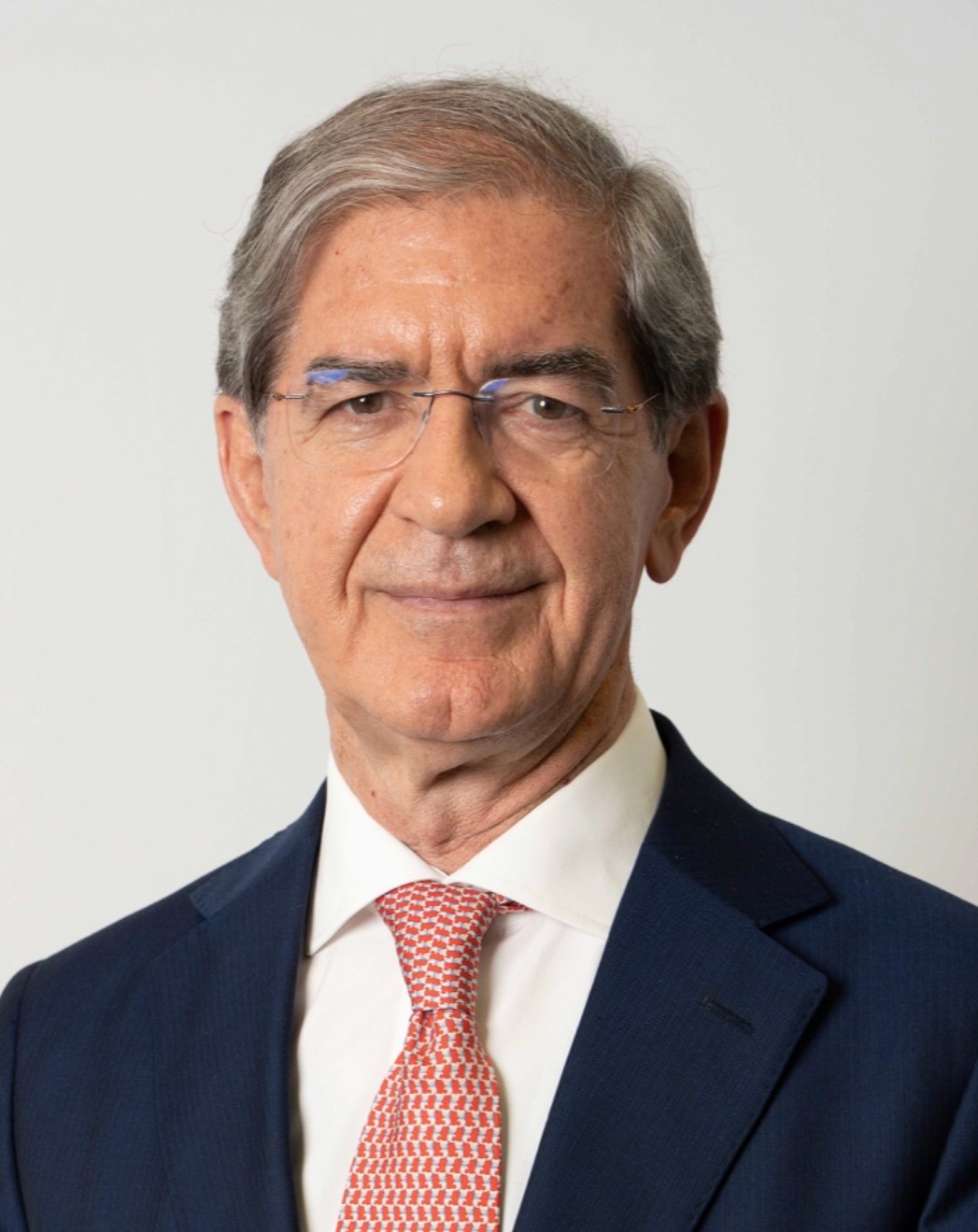 |
Fernando SantoTitle: The Context of Building Rehabilitation Brief Summary: Building rehabilitation is a highly specific area of construction, dependent on political decisions related to safety, taxation, heritage and environmental protection, as well as constraints affecting the execution of works. The CIRMARE 2025 intervention aims to address these issues, as this activity often relies on factors that are frequently overlooked by specialists. Although it has been on the political agenda since 2004, investment in building rehabilitation remains very limited compared to its potential and actual needs. Brief CV: Civil Engineer, graduated from Instituto Superior Técnico. He is a Chartered Member of the Portuguese Order of Engineers and a Specialist in Construction Management and Supervision. His professional career has been dedicated to construction, real estate project management, and the management of entities with significant assets. He is currently President of the Strategic Council for Construction, Real Estate and Housing at CIP (Confederation of Portuguese Business). Since July 2023, he has also been National Vice-President of the Portuguese Red Cross. He has been a guest lecturer at ISEG in the Postgraduate Program in Real Estate Management and Valuation since 2001. He works as a consultant in real estate management. Among his previous positions, the following stand out: Member of the Board of Directors at Banco Montepio (2015–2018), Executive Board Member at Montepio Gestão de Ativos Imobiliários (2014–2023), Secretary of State for Asset Administration at the Ministry of Justice (2011–2013), and President (Bastonário) of the Portuguese Order of Engineers (2004–2010). Full presentation: link |
 |
Liane FlemmingTitle: Efficiency and resilience in facades for comfort in renovated old buildings Brief Summary: Redeveloping buildings to make them efficient requires careful selection of the materials to be added to their interior. Standards and BIM-type programs are tools that should be used to make choices, evaluations, and simulations during the planning of interventions. The role and composition of the building envelope are elements that make up the building system, which has a life cycle and must be well designed to ensure the building's energy efficiency, sustainability, and resilience. Brief CV: Professor at the School of Fine Arts of the Federal University of Rio de Janeiro – Brazil, Architect with an M.Sc. in Environmental Comfort and a D.Sc. in Architecture, also specializing in (a) History of Art and Architecture in Brazil (1994); (b) Ergonomics, Usability, and Quality of Life (2006) and (c) Restoration and Recycling of Buildings (1996), with further training in Urban Sprawl City versus Suburbia Bauhaus Kolleg, BAUHAUS – Germany (1998). Researcher in the adaptation of multifamily buildings for greater efficiency, using BIM as a simulation and comfort assessment tool for responsive facades in the interface and control of environmental comfort in urban rehabilitation. Full presentation: link |
 |
Humberto VarumTitle: Seismic behaviour of RC buidings: Lessons from recent earthquakes, standards and research needs Brief Summary: Recent earthquakes have shown that many existing reinforced concrete building structures may not perform adequately in future seismic events due to factors such as design concepts, structural irregularities, inadequate detailing, and the influence of non-structural elements. The evolution of materials, technical solutions, and construction systems adds complexity and uncertainty to seismic performance. So, research is essential to support the development of seismic design rules that ensure rigorous yet practical guidelines. Brief CV: Full professor at the Civil Engineering Department of the Faculty of Engineering of the University of Porto, and President of the Institute for Sustainable Construction, in Portugal. His main research interests include: assessment, strengthening and repair of structures, earthquake engineering, historic constructions conservation and strengthening. Full presentation: link |
 |
Mohammad NajjarTitle: Sustainability for the Green Future in Rehabilitated Buildings Brief Summary: The sustainable building is capable of optimizing energy consumption and other natural resources, as well as offering greater comfort and safety to its occupants. Digitalization and sustainability are two trends that are shaping the future of construction. When combined, they offer incredible potential to transform the way we design, construct and use our buildings, opening up new possibilities for rehabilitating buildings in a more efficient and healthy way. We will discuss the importance of considering sustainable building strategies, including reducing energy consumption, selecting sustainable materials, and the green future of buildings. Brief CV: Professor in the Department of Civil Construction at the Polytechnic School of the Federal University of Rio de Janeiro (UFRJ) and professor in the Environmental Engineering program at UFRJ. He holds a PhD (2019) and Post-Doctorate (2020) in Environmental Engineering from UFRJ, a degree in Architecture and Urbanism (2007) from Tishreen University in Syria, and a Master's degree (2009) in International Planning and Sustainable Development from the University of Westminster in London - UK. Mohammad Najjar is an Architect, registered with the Council of Architecture and Urbanism (CAU) in Brazil. He is a BIM and Sustainable Construction professional with experience in Civil Engineering, Environmental Engineering, and Architecture and Urban Planning, working mainly on the following topics: Building Comfort and Sustainability, Civil Construction, Urban Engineering, Life Cycle Assessment and Building Safety and Maintenance. He is an Editor and Guest Editor for several national and international journals. Full presentation: link |